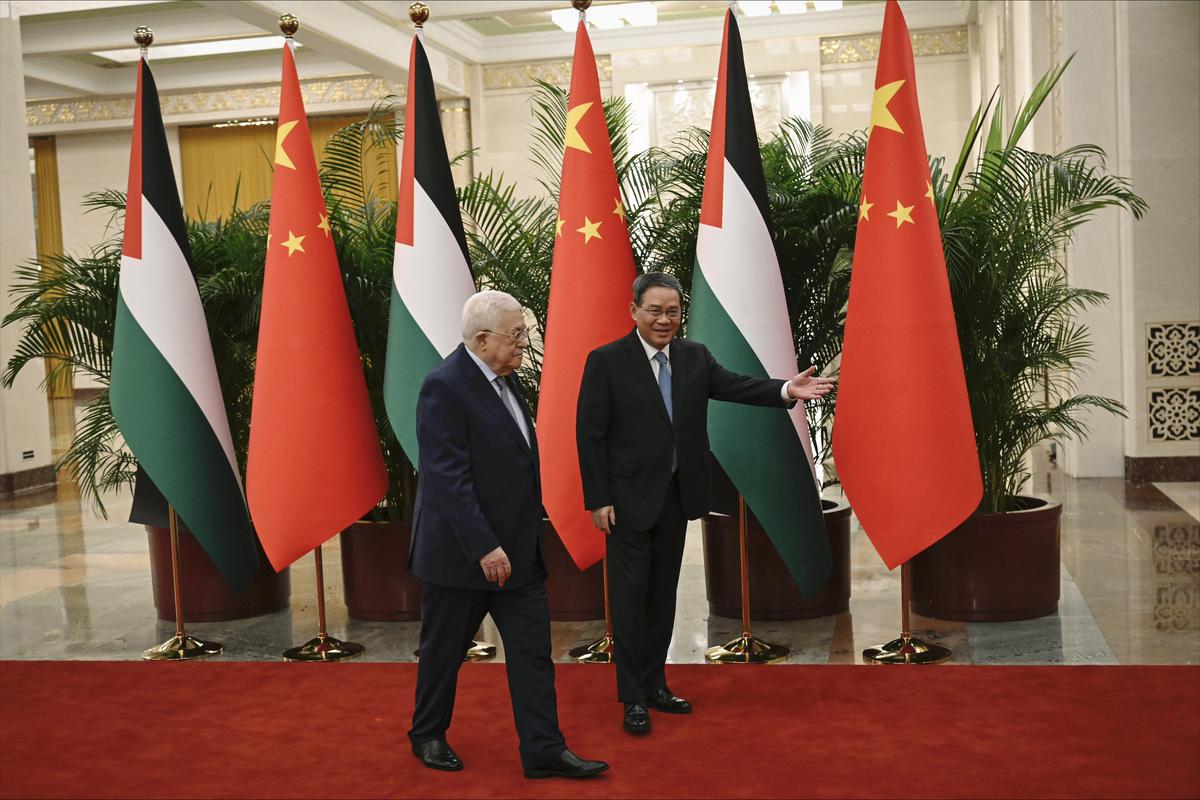
The diplomatic relations between China and Palestine have taken a significant step forward as Chinese Premier Li Qiang met with Palestinian President Mahmoud Abbas on June 15. This meeting underscores China’s commitment to strengthening its presence in the Middle East and elevating its relationship with Palestine. The visit by President Abbas to China was met with warm reception, including full military honors extended by Xi Jinping, China’s President, and the leader of the ruling Communist Party.
Table of Contents
- Introduction
- Historical Background
- Strengthening Bilateral Ties
- Economic Cooperation
- Political Support
- Cultural Exchange
- Infrastructure Development
- Security Cooperation
- Chinese Investment in Palestine
- China’s Role in the Israeli-Palestinian Conflict
- Middle East Stability and Peace
- Conclusion
- FAQs
Introduction
China’s engagement with the Middle East has been steadily increasing over the past decade, and this meeting between Premier Li Qiang and President Mahmoud Abbas signifies a renewed commitment to enhance their bilateral relationship. With China’s growing economic and political influence globally, it seeks to play a more active role in Middle Eastern affairs.
Historical Background
China and Palestine have a longstanding history of friendly relations. China was one of the first countries to recognize the State of Palestine in 1988 and has consistently supported the Palestinian cause. Over the years, diplomatic ties between the two nations have deepened, encompassing various areas of cooperation.
Strengthening Bilateral Ties
The meeting between Premier Li Qiang and President Mahmoud Abbas aims to strengthen the bilateral ties between China and Palestine. This visit provides an opportunity for both leaders to discuss and exchange views on key issues of mutual interest, including political, economic, and cultural cooperation.
Economic Cooperation
China has emerged as a significant economic partner for Palestine. The meeting between Premier Li Qiang and President Mahmoud Abbas presents an opportunity to explore avenues for further economic cooperation. Chinese investment in Palestine’s infrastructure, energy, and technology sectors has the potential to stimulate economic growth and create employment opportunities.
Political Support
China has consistently supported the Palestinian cause, advocating for the establishment of an independent and sovereign Palestinian state based on the pre-1967 borders with East Jerusalem as its capital. Premier Li Qiang reiterated China’s commitment to a two-state solution during the meeting, expressing support for Palestine’s aspirations for statehood.
Cultural Exchange
Promoting cultural exchange and understanding is an integral part of China’s diplomacy. The meeting between Premier Li Qiang and President Mahmoud Abbas provides an opportunity to enhance people-to-people connections between China and Palestine. Cultural exchange programs, such as art exhibitions, music festivals, and academic exchanges, can foster mutual understanding and appreciation.
Infrastructure Development
China’s expertise in infrastructure development can contribute significantly to Palestine’s economic growth and stability. Premier Li Qiang expressed China’s willingness to share its experience and assist in the development of infrastructure projects in Palestine, including transportation, energy, and telecommunications.
Security Cooperation
Enhancing security cooperation is another crucial aspect of China-Palestine relations. China has expressed its commitment to support Palestine in building its capacity to combat terrorism and maintain stability. The meeting between Premier Li Qiang and President Mahmoud Abbas opens avenues for cooperation in intelligence sharing, training, and joint exercises.

Chinese Investment in Palestine
Chinese investment in Palestine has the potential to catalyze economic development and improve the livelihoods of Palestinians. Premier Li Qiang emphasized China’s willingness to encourage Chinese enterprises to invest









